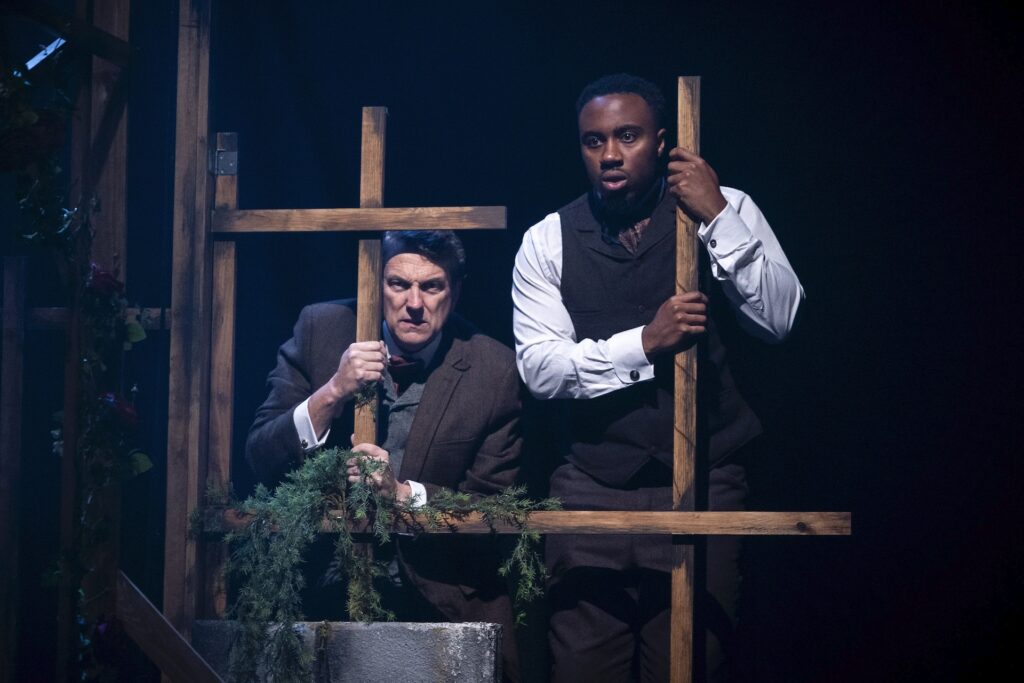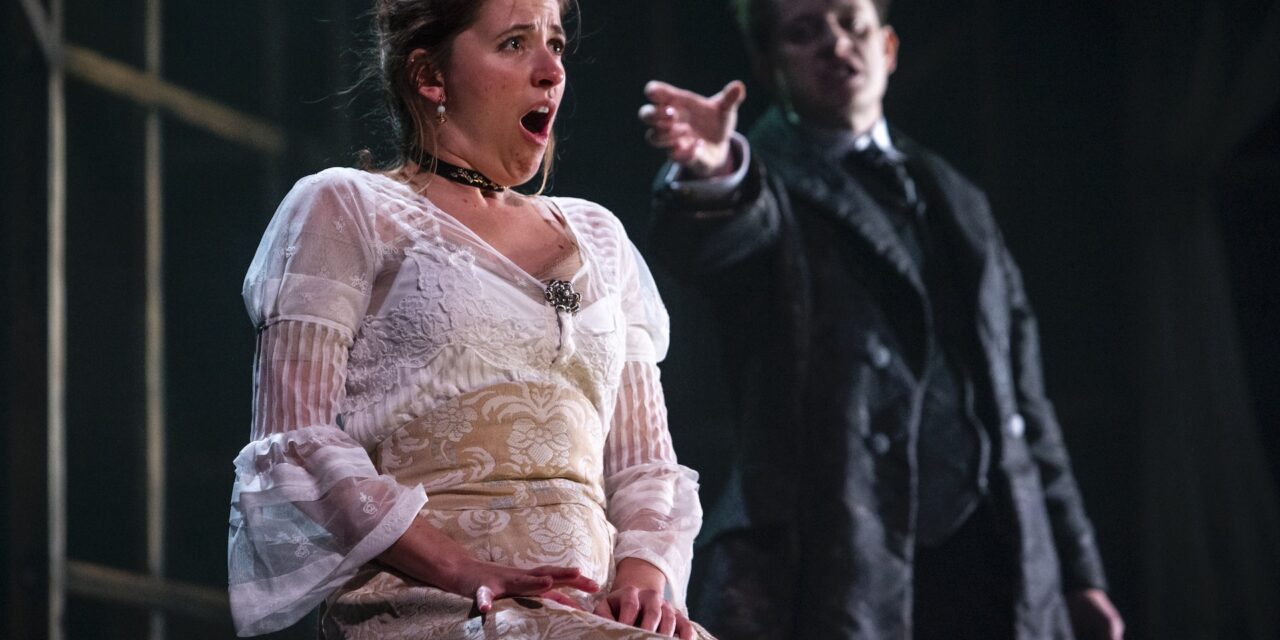
8 – 12 October
If you are adapting a novel for the stage you had better have a good reason for doing so, namely using the assets of the theatre to good effect; the talent of actors, lighting, sound, set and so forth. The trap often fallen into by those taking on the enterprise is to try and put too much of the original on stage, particularly if the novel is in any sense epic in scale. What invariably happens is that narration takes the place of drama. That pitfall is only worsened when the narration is split up between the actors. Nonetheless I had high hopes when the play started and the cast formed a chorus, intoning the supposed fact that vampires exist. However, hopes of genre-bending were soon dashed.
The reliance on tracts of narration meant that the actors were not given sufficient material to show their real worth. Although the book is written as such, the series of letters and journal entries delivered directly as readings from the diary of Jonathan Harker (Pelé Kelland-Beau) have the effect of breaking the dramatic flow. Moreover, being delivered briskly and in such a pedestrian way, I found myself wishing I was at home reading the story for myself.
That said, David Chafer has conjured up an urbane Count Dracula (in Transylvania) eager to get to the centre of empire as the best place to spread his diseased blood. A rejuvenated Dracula (Richard Keightley) picks up the baton in England and sets about his task with some relish on arrival in Whitby, whilst Mr Chafer becomes gamekeeper as vampire hunter Van Helsing. There is much simpering from the ladies with a good deal of stage time given over to the exigencies of finding a husband. Again, because of the all-inclusive nature of the adaption issues around sexuality and the role of women in Victorian society are given scant attention. Anyone hoping for a good dose of sex from the production will be disappointed.
One makes certain allowances for stage sets that need to tour and a little imagination can often create surprising results. The skeletal wooden set did allow some variation in levels whilst the orange boxes used for seating were moved around the stage to little effect. Again this seemed to me the result of trying to do too much with available resources whilst not having any clear idea of style.
This is a production which seems to offer much, but is full of missed opportunities.
★★☆☆☆ Graham Wyles, 10 October 2024
Photo credit: Karl Andre


